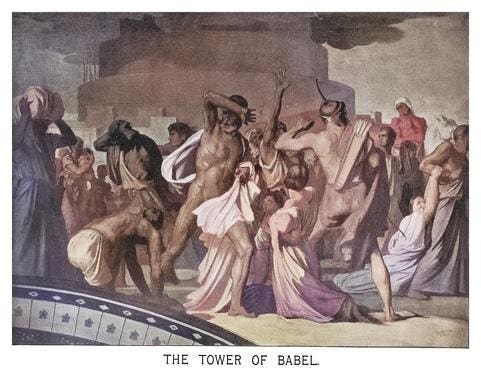In part 1 of this series, I explained why the current definitions of ‘management’ fail because they are not only inconsistent but fail to depict the actual subject under discussion. In part 2, I explained why the definition of ‘management’ widely taught in business schools is unsatisfactory. Now, in part 3, I lay out the conceptual steps that would need to be taken to reach a viable definition of ‘management’
Criteria For A Definition Of ‘Management’
What would have to be true for a definition of ‘management’ to be satisfactory? The following ten steps are necessary.
1. Single sentence: The definition should be in single sentence. Thus ‘management’ is a complex multi-dimensional idea, but if all, or even many, of the dimensions, are included, the definition becomes unintelligible. There is room for the three or four of the most important characteristics.
2. ‘Management is…’ The sentence would need to begin “Management is…” If it begins any other way, such as “Management guides behavior in an organization…”, it implies that management has a meaning other than guiding behavior.
3. Timeless: Although the term ‘management’ has only been in use in the last several hundred years, the phenomenon of management has been around for several thousand years, for instance, the ways in which the ancient Egyptians built the pyramids, the ancient Romans built their aqueducts, the Chinese ran their bureaucratic state, the English managed the joint stock company known as the East India Company.
4. Self-explanatory: The definition should be self-explanatory, enabling us to see immediately what is, and what is not, management. The definition could be accompanied by a description of any of the principal dimensions of management that are not included in the definition itself.
5. Descriptive, Not Merely Illustrative or Prescriptive: The definition must include the most important characteristics of management. It cannot be in the form of recommending a single firm, “Do what Morning Star does” or “Adopt the Spotify model.” To be usable, the definition should contain the principal characteristics of management, while refraining from incorporating recommendations as to what the desirable pattern of management should be in any particular time or place.
6. Both Subjective and Objective: Although there are currently definitions of management that are purely subjective (e.g. “management is mindset”) or liited to what is objectively observable (“Management is a process or a system”), a review of the several-thousand-year history of the subject suggests that both subjective and objective dimensions are necessary elements of management. Thus, processes without subjective mindsets or philosophy are inert, while mindsets or philosophies without processes cannot consistently guide action.
7. An Interactive Complex Adaptive System: The definition should reflect that the fact that an organization is not only a complicated phenomenon. It is a complex adaptive system, that is not amenable to change by simple linear cause-and-effective interventions, nor are the results of interventions in principle predictable.
8. Value-free: The definition needs to be value-free, in the sense that it should not include an endorsement of any particular recommendation as to what the most desirable pattern of management is or should be. It should be wide enough ro include not only the patterns of management of which we approve, but also those of which we do not approve. It would thus include the management deployed by the armies of evil tyrants; in this way, we can have a discussion as to why any particular form of management is good or evil, without getting bogged down in definitional questions.
9. Using generic terms to summarize:
- Thus “mindsets” might be used in the definition as a collective term for all the non-observable phenomena including mindsets, philosophies, goals, values, attitudes, leadership, assumptions, tacit knowledge, and culture.
- And “processes” might be used in the definition as a collective term for all the observable phenomena such as processes, practices, structures, systems, methods, frameworks, and capabilities,
10. Potentially acceptable to multiple schools of thought: Although it is unlikely that the warring factions will abandon their own definition at oance, the definition must have the potential to be acceptable to all the main schools of thought, once they have grasped the futility of the current situation, a meaningless Tower of Babel.
Some Initial Contenders For The Definition Of ‘Management’
Over the last month, an informal group of practitioners and analysts has been discussing possible definitions of management that would meet these criteria. No final agreement has yet been reached as to the best definition.
The following are some of the leading contenders, shown here in no particular order:
- A. Possible Definition A: “Management is the set of interactions between mindsets and processes that enable an organization or group of people to achieve a purpose;” or
- B. Possible Definition B: “Management is a set of embedded mindsets and processes that guide interactions within organizations and their component groups;” or
- C. Possible Definition C: Management facilitates the patterns and guides the interactions between people to develop shared mindsets to achieve a purpose; or
- D. Possible Definition D: Management is:
- Defining the purpose of the organization (what it will do for whom)’;
- Creating a system (including a team of stakeholders) that is capable of achieving that purpose within a complex adaptive environment;
- Providing the mental models, tools, and resources to ensure that the system can create more value for its purpose than anybody else could.
- E. Possible Definition E: “Management is the way in which human beings combine their efforts to achieve their goals”
- F. Possible Definition F: “Management is a process designed to achieve an organization’s objectives by using its resources effectively and efficiently in a changing environment…. Managers make decisions about the use of resources, and are concerned with planning, organizing, directing, and controlling the organization’s activities so as to reach its objectives.” (Business Foundations, 2022)
All of these possible definitions have merits and shortcomings. Rather than rushing to closure on one possibility, the informal group is inviting others to make suggestions and offer insights. What do you think? How would you define management?
And read also:
Part 1: Why ‘Management’ Desperately Needs A Fresh Definition
Part 2: Why Business Schools Teach Yesterday’s Expertise
Read the full article here





